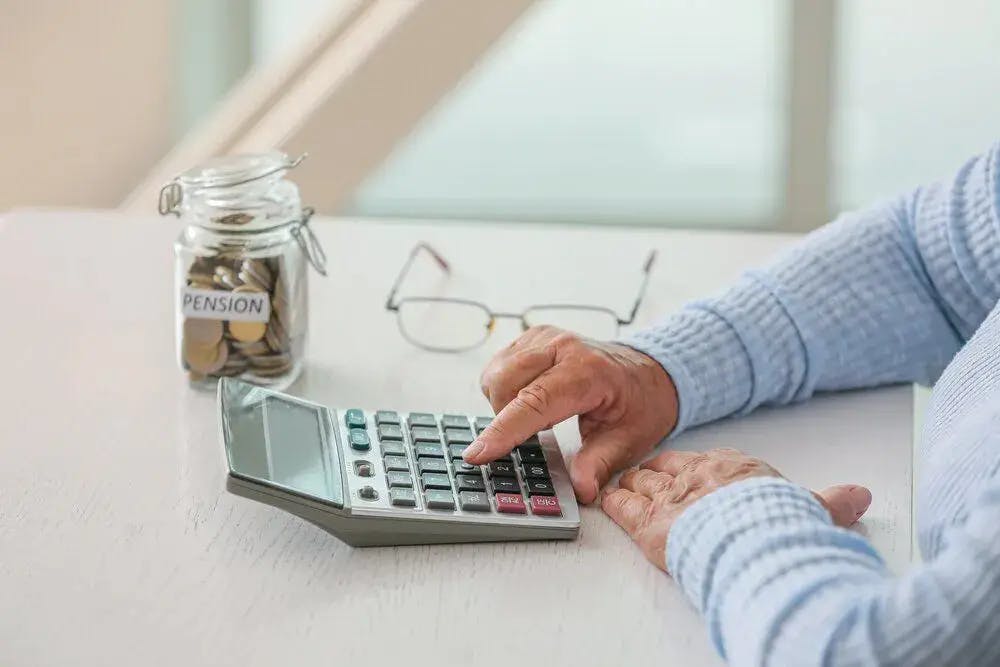What Happens With Your Pension in a Care Home?

Estimated Reading Time: 7 minutes
Your State Pension will continue when you move into a care home, but the amount you receive may change, depending on whether you pay for your own care.
Private pensions remain unaffected, and you’ll continue to receive this in the same way.
Read on to find out more about what exactly happens with your pension when you move into a care home, alongside the additional benefits you could be entitled to.
Kickstart your care search
Discover the best care homes in your area through Lottie.
In this article:
- Does your State Pension stop if you go into a care home?
- What happens to a private pension in a care home?
- Council funded care & pensions
- Can you get pension credit in a care home?
- Other benefits you can receive in a care home
- Benefits you may not be able to receive in a care home
Does Your State Pension Stop if You Go into a Care Home?
You’ll continue receiving the same amount of Basic State Pension or New State Pension if you move into a care home and pay for your own care.
However, if your local authority pays for your care, your State Pension will be classed as a form of income when working out how much you can contribute. Some of your pension will then go towards care home fees, and you’ll receive the rest.
The current new full State Pension amount is £230.25 a week.
What Happens to a Private Pension in a Care Home?
Any private pensions you have won’t be reduced when you move into a care home. This also applies if your spouse goes into a care home.
However, your local council will consider any private pensions you have when working out the total value of your savings, income and assets during a financial assessment for care fees.
If you think you may have lost track of a pension, you can use a pension tracing service to regain access.
We’re here to help you find the right care home for you or your loved one. You can request a free list of care homes from our Care Experts, who will then share homes matching your budget, location and type of care needed. You can also search for care through our easy-to-use directory.
Council Funded Care & Pensions
When your local council carries out a financial assessment for moving into a care home, they look at the total value of your pensions, savings, benefits, income and assets, to see if this is below or above the thresholds for care home funding.
If your total savings and assets are above the upper threshold, you’ll be classed as a self-funder and will pay for your own care. If your savings and assets are between the thresholds, you’ll qualify for partial support from your local authority. If your savings and assets are below the lower threshold, you’ll qualify for maximum funding support.
These thresholds vary in England, Scotland, Wales and Northern Ireland:
| Country | Upper Threshold | Lower Threshold |
|---|---|---|
| England | £23,250 | £14,250 |
| Scotland | £35,000 | £21,500 |
| Wales | £50,000 | N/A |
| Northern Ireland | £23,250 | £14,250 |
If your council pays some or all of your care home fees, your income (this includes your State Pension and allowances) will be affected in the following ways:
At least some of your income and State Pension must go towards the costs of your care home. You’ll be allowed, however, to have a minimum weekly income - your Personal Expenses Allowance (we’ve explained this allowance below)
If you’ve previously received Carer’s Allowance, Carer's Allowance Supplement, or Attendance Allowance, you’ll no longer receive them
Your Personal Independence Payment (PIP) or Disability Living Allowance (DLA) will continue if you’re in a residential care home, but not if you’re in a nursing home
There are exceptions to the above. For example, if you suddenly come into a great deal of money, your council will stop funding your care and you’ll begin receiving the benefits above once more.
Personal Expenses Allowance (PEA)
If your care home fees are paid partially or fully by your local council, your State Pension may then be used as a contribution towards the total cost of your care.
To make sure you still have a supplementary income each week, your local council will set aside a certain amount from your pension.
This is called a Personal Expenses Allowance (PEA) and it varies across the UK:
| Country | Weekly Amount (2025/2026) |
|---|---|
| England | £30.65 |
| Scotland | £34.50 |
| Wales | £43.90 |
| Northern Ireland | £27.19 |
*In Wales, the Personal Expenses Allowance is now known as the Minimum Income Amount (MIA).
Can You Get Pension Credit in a Care Home?
If you’re over the State Pension age and are on a low income, you could claim Pension Credit. Over four million people are entitled to it, but over a third fail to claim it.
Based on your capital and income, Pension Credit comes in two parts. We’ve explained both of these below:
Savings Credit
To qualify for Savings Credit, you must:
- Have reached the State Pension age before the 6th of April 2016
- Have a minimum income of £198.27 a week if you’re single or £314.34 if you’re in a couple
If eligible for savings credit, you’ll get up to £17.30 a week if you’re single or £19.36 if you’re claiming as a couple.
Guarantee Credit
To qualify for Guarantee Credit, you must:
- Have reached the State Pension age (this is currently 66 for men and women in the UK)
- Have a weekly income that’s less than £227.10 if you’re single or £346.60 if you’re in a couple
Guarantee Credit supplements your weekly income. This is up to a maximum of £227.10 a week if you’re single or £346.60 if you’re in a couple.
Other Benefits You Can Receive in a Care Home
There are several other benefits and similar government income support you can claim in a care home if eligible. These include:
- Bereavement Support Payment
- Child Tax Credit (if you’re still responsible for a child)
- Employment and Support Allowance
- Industrial Injuries Disablement Benefit
- Severe Disablement Allowance
- Universal Credit (this is replacing Housing Benefit)
Benefits You May Not Be Able to Receive in a Care Home
Attendance Allowance
Attendance Allowance is for people above the State Pension age with a disability or condition that means they require extra care. This is paid at two different rates, depending on the level of care you need.
This is worth £110.40 a week at the higher rate and £73.90 a week at the lower rate for 2025/2026. This rose from £108.55 and £72.65 in April 2025.
You can claim Attendance Allowance in a care home if you self-fund your own care. You won’t be able to continue claiming Attendance Allowance if your local council pays for your care.

PIP daily living component
Personal Independence Payment (PIP) is similar to Attendance Allowance, except this benefit is for people below the State Pension age.
PIP is split into a daily living component (for people who have difficulty with daily tasks) and a mobility component (for people who have difficulty getting around). There are two different PIP rates. The PIP rate you get for each component depends on the extent of your illness or disability.
People living in a care home can still claim the daily living component, but not the mobility component as they no longer need it.
Explore The UK’s Best Care Homes:
Use Lottie to find the best care homes in the UK by price, the care types available, facilities, activities and more:
Frequently Asked Questions
Does NHS continuing healthcare affect your State Pension?
NHS continuing healthcare won’t impact your State Pension in any way.
How does the State Pension work in a care home in Scotland?
If you move into a care home in Scotland, you’ll still receive your State Pension. However, if your care is being partially or fully paid for by your local authority, you might have to use some of this pension as a contribution towards the cost of care.
You’ll always be left with a weekly personal expenses allowance though. In Scotland, this is £34.50.
What happens to my husband’s State Pension if he goes into a care home?
When your husband moves into a care home, neither his nor your State Pension will change. He’ll continue receiving it the same as before, though some of this pension may go towards his care home fees.




